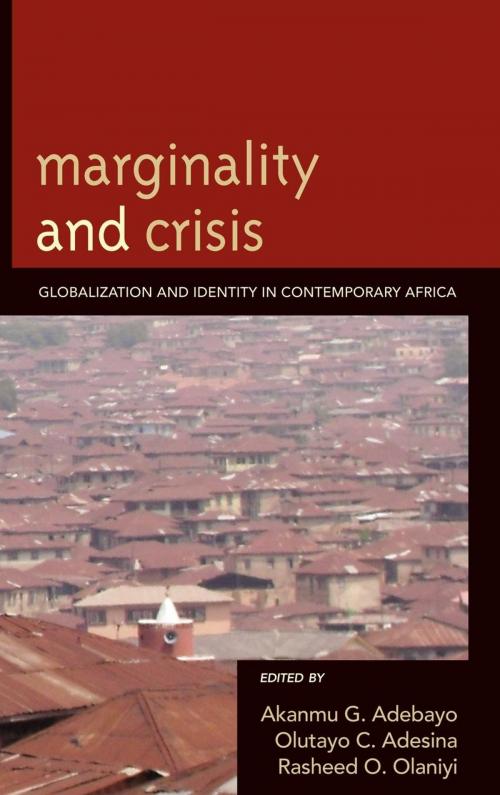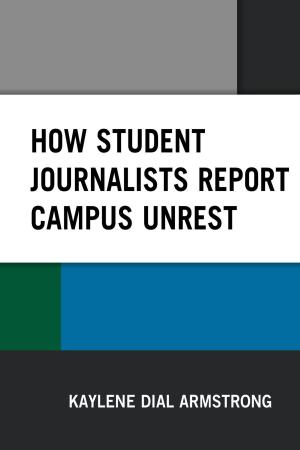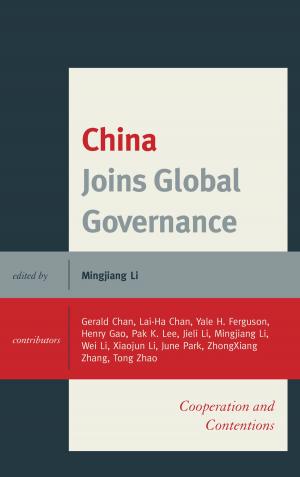Marginality and Crisis
Globalization and Identity in Contemporary Africa
Nonfiction, Social & Cultural Studies, Political Science, Government, Social Policy, Politics, Economic Policy| Author: | Olutayo C. Adesina, Osita Agbu, Olajide Olayemi Akanji, Moses T. Aluaigba, Ronald Olufemi Badru, H O. Danmole, Obademi Olalekan Emmanuel, Sheriff Folarin, Agbo Uchechukwu Johnson, Olayinka Idowu Kareem, Eamon Lenihan, Flavius Mokake, David Moveh, Mwanakombo Mohammed Noordin, S O. Ogundele, Ayo Ogunsiji, Aloysius-Michaels Okolie, Rasheed O. Olaniyi, Stephen Onakuse, Henry Okodua, Andrew Oseloka Sawyer | ISBN: | 9780739145586 |
| Publisher: | Lexington Books | Publication: | May 25, 2010 |
| Imprint: | Lexington Books | Language: | English |
| Author: | Olutayo C. Adesina, Osita Agbu, Olajide Olayemi Akanji, Moses T. Aluaigba, Ronald Olufemi Badru, H O. Danmole, Obademi Olalekan Emmanuel, Sheriff Folarin, Agbo Uchechukwu Johnson, Olayinka Idowu Kareem, Eamon Lenihan, Flavius Mokake, David Moveh, Mwanakombo Mohammed Noordin, S O. Ogundele, Ayo Ogunsiji, Aloysius-Michaels Okolie, Rasheed O. Olaniyi, Stephen Onakuse, Henry Okodua, Andrew Oseloka Sawyer |
| ISBN: | 9780739145586 |
| Publisher: | Lexington Books |
| Publication: | May 25, 2010 |
| Imprint: | Lexington Books |
| Language: | English |
Marginality and Crisis: Globalization and Identity in Contemporary Africa extends the scope and understanding of the effects of globalization and its forces on Africa. With each chapter written by specialists who recognize that the future of Africa is entwined with that of the rest of the world, this volume explains with fresh vigor the new thinking on the historical specificity, value, opportunity, and shortcomings of globalization for a continent many regard as marginalized and in crisis. In the face of much pessimism, several questions have engaged the attention of this young generation of African scholars: Where is Africa in relation to globalization? Where are the things that make Africa Africa (such as economy, politics, culture, identity, and human relations) headed? Are Africa's communities helpless against global forces or empowered by new avenues of access? How do scholars and policymakers engage the problems of globalization vis-^-vis Africa's ethnic, linguistic, and other identities? What are the economic and political trajectories in various countries and localities? An invaluable source for scholars, students, and the general reader, the essays in this book have confidently and clearly explored and explained the crises that have engulfed the continent in the age of globalization. Unlike other works that have dwelt only on the continent's victimhood, this volume identifies key areas in which Africa can become more proactive and outward-looking in response to the forces and values that take the globe as their reference points.
Marginality and Crisis: Globalization and Identity in Contemporary Africa extends the scope and understanding of the effects of globalization and its forces on Africa. With each chapter written by specialists who recognize that the future of Africa is entwined with that of the rest of the world, this volume explains with fresh vigor the new thinking on the historical specificity, value, opportunity, and shortcomings of globalization for a continent many regard as marginalized and in crisis. In the face of much pessimism, several questions have engaged the attention of this young generation of African scholars: Where is Africa in relation to globalization? Where are the things that make Africa Africa (such as economy, politics, culture, identity, and human relations) headed? Are Africa's communities helpless against global forces or empowered by new avenues of access? How do scholars and policymakers engage the problems of globalization vis-^-vis Africa's ethnic, linguistic, and other identities? What are the economic and political trajectories in various countries and localities? An invaluable source for scholars, students, and the general reader, the essays in this book have confidently and clearly explored and explained the crises that have engulfed the continent in the age of globalization. Unlike other works that have dwelt only on the continent's victimhood, this volume identifies key areas in which Africa can become more proactive and outward-looking in response to the forces and values that take the globe as their reference points.















